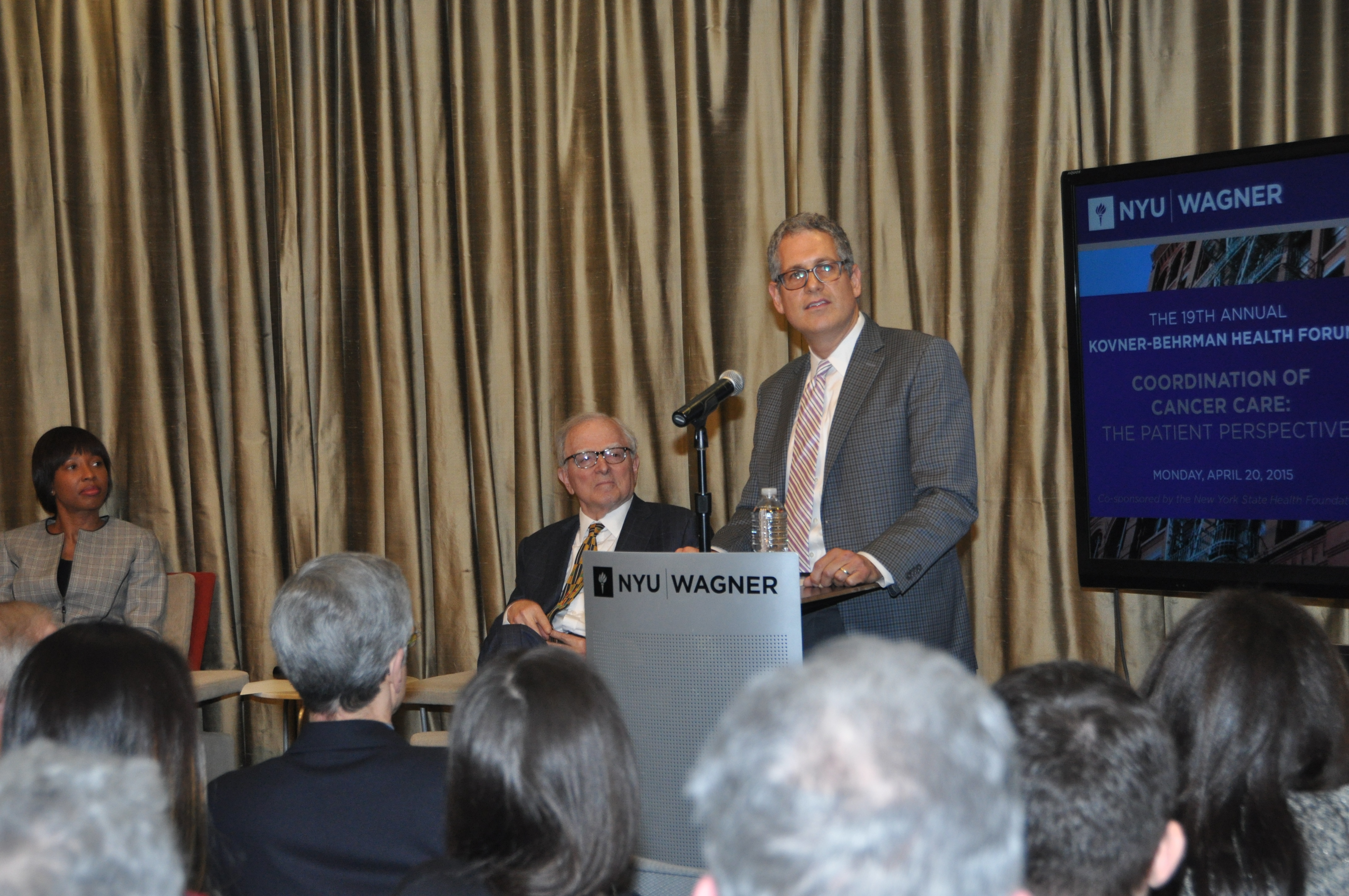Kovner-Behrman Health Forum Focuses on Coordination of Cancer Care

Established by NYU Wagner Professor Anthony Kovner in 1996, the annual Kovner-Behrman Health Forum focused on “Coordination of Cancer Care: The Patient Perspective” on April 20, with a discussion featuring Associate Professor Ingrid M. Nembhard of the School of Public Health and the School of Public Management at Yale and Ethan Basch, an oncologist and Director of Cancer Outcomes Research at the University of North Carolina.
Sherry Glied, Dean of NYU Wagner, offered words of welcome, while Professor Kovner set the tone with emotional remarks. Speaking to more than 100 attendees, he recalled his parents’ and brother’s struggle with cancer, and emphasized the life-and-death importance of the evening’s topic for so many, from the standpoint of cancer patients and their loved ones in particular.
The featured guests illuminated the challenging, evolving world of coordinated care in cancer treatment, citing growing interest among healthcare organizations and medical providers in new approaches.

Many of these approaches still require additional study and development, while others are already in use, though not uniformly. The challenge will be to demonstrate their value and bring the most promising ones to scale. The 19th annual Kovner-Behrman Health Forum, in focusing on the issue of care coordination, marked an important step in this direction.
“The current model of care delivery does not have the patient at its center,” lamented Dr. Basch. But he, and Professor Nembhard, both described a rising level of interest in care coordination, notable instances of success around the country, and even, as Basch put it, a nascent “cultural change to bring the patient to the center of care.”